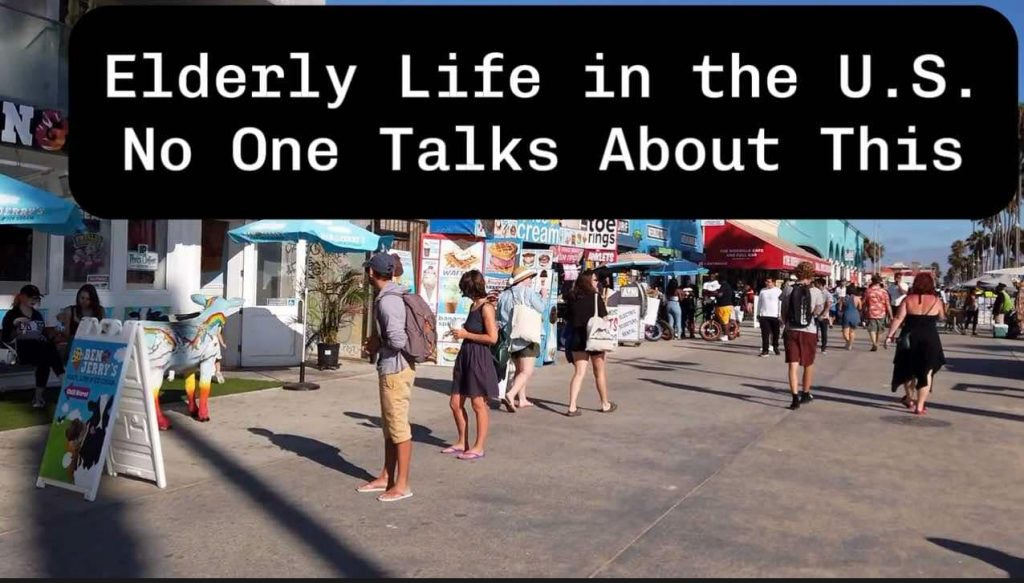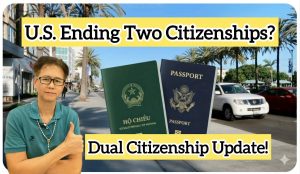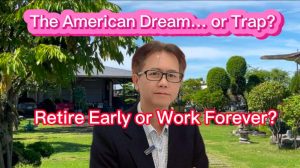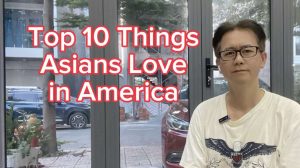Are Elderly People Happy Living in America? The Untold Truth Behind the American Dream

Are Elderly People Happy Living in America? The Untold Truth Behind the American Dream
Are Elderly People Happy Living in America?
“In America, I have everything… except my homeland.”
This quote was shared by a Vietnamese elder during a community gathering in California. It’s not just a complaint—it’s a quiet cry from the heart, echoing the sentiments of thousands of elderly immigrants who live in the United States, far from the place they once called home.
1. The Dream Turns Cold
For many older adults, moving to the U.S. through family sponsorship is seen as a reward after a lifetime of hard work. The hope is to live comfortably, receive good healthcare, and enjoy peace in retirement.
At first, everything feels exciting. The houses are clean, the roads are wide, and the medicine is effective. But after a few months, the shiny exterior wears off—and what’s left is often loneliness, silence, and disconnection.
In Vietnam, elders wake up to the sound of street vendors, share coffee with neighbors, walk to the local market, and chat with friends. In America, they wake up in a quiet house, where no one’s home from 9 to 5. The streets are empty. The neighbors are strangers. And the silence becomes unbearable.
2. A True Story from Texas
Let’s take the story of an elderly couple from C?n Th?, Vietnam, who were sponsored by their daughter to live in Texas.
When they first arrived, their daughter and son-in-law took a week off work to show them around—dining at Vietnamese restaurants, visiting parks, sending cheerful photos back home. The couple was excited. America looked like a dream.
But soon, reality returned. The daughter and son-in-law went back to work. The house became quiet again. The elderly couple stayed home alone. They didn’t drive, didn’t speak English, and didn’t know how to take public transportation.
Want to see a doctor? They had to wait for their children to schedule it—and that meant waiting days or even weeks. Slowly, they began to feel like a burden, an inconvenience in someone else’s life.
3. Why Do Many Choose to Stay in the U.S. Despite the Loneliness?
You’d think, given the emotional toll, that many would pack up and return home. And some do. But many stay, for reasons that are as practical as they are painful.
- Social Security and Healthcare Benefits:
After 10 years in the U.S., many seniors qualify for SSI, Medicare, or other public assistance. These benefits are vital, especially when healthcare in old age becomes expensive and frequent. - Love for Their Children and Grandchildren:
Many elders choose to suffer in silence for the sake of their family. “As long as the kids succeed,” they say, “I can manage.” - Familiarity and Habit:
After years of living in the U.S., even the sadness becomes familiar. They fear starting over back home, where everything feels foreign again. - Fear of Being a Burden in Vietnam:
Some worry they’ll be treated like outsiders in their own country—disconnected from siblings, neighbors, or even forgotten.
4. Why Do Some Return to Vietnam?
On the other hand, many seniors decide to return home after a few years. They give up the benefits, the insurance, and the quiet comfort of America—in exchange for laughter, noise, and emotional warmth.
- They Miss the Human Connection:
In Vietnam, they can go to the market, chat with neighbors, and feel alive again. Back in the U.S., they feel like shadows in their own home. - The Weather and Food Suit Them Better:
The cold winters in the U.S. cause pain and stiffness. In Vietnam, the warm weather helps them feel physically healthier and emotionally lighter. - They Want to Die Where They Were Born:
For many, it’s not just about where they live—but where they want to rest in peace. The smell of their village, the sound of familiar streets, is where they want their final days to be. - They Have Enough Financial Support:
Some receive money from their children in the U.S. or have savings, homes, or land in Vietnam—making it easier to live independently.
5. Is Happiness Really About Location?
Going to America isn’t wrong. Staying isn’t wrong. Returning home isn’t wrong either. What matters most is whether you feel peace in your heart.
There are elders in the U.S. who have everything—money, medicine, safety—but still feel emotionally empty.
And there are elders in Vietnam who have less—but laugh daily, surrounded by warmth and connection.
Aging is difficult anywhere. But aging alone is the hardest part.
As one elder said,
“What good is a full fridge if there’s no one to eat with you?”
6. Final Thoughts – Home Is Where Love Lives
America has everything: roads, homes, doctors, welfare systems. But it’s missing one thing—home.
Home isn’t just a place. It’s the voice calling your name from the kitchen. It’s the neighbor knocking on your door to borrow fish sauce. It’s the friend waiting at the corner café. It’s a place where you feel needed, not forgotten.
Some choose to stay for their children.
Some choose to return for themselves.
Each choice is valid.
But everyone, deep down, just wants the same thing: to live with dignity, to be loved, and to not die alone.
Because in the end, happiness isn’t about where you live—
It’s about who’s waiting for you to come home.
#ElderlyInAmerica #LonelyAbroad #AmericanDreamReality #AgingInTheUS #VietnameseImmigrants #RetireInVietnam #SeniorLifeUSA #FamilyAndIsolation #TruthAboutImmigrantLife






